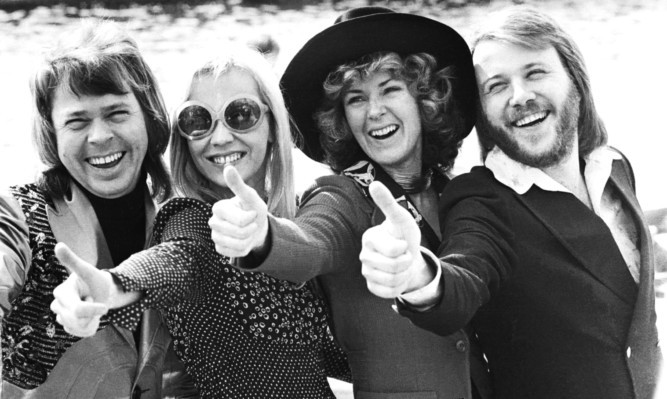
My, my, at Waterloo, Napoleon did surrender and with Waterloo, ABBA did begin their hugely-successful international career.
The Swedish pop group have the Eurovision Song Contest to thank for their fame after the show saw them crowned as winners, and stardom quickly followed.
April 6, 1974 was the pivotal day, and the single became the band’s first No 1 hit in several countries.
It went on to sell nearly six million copies, making it one of the bestselling singles of all time.
In fact, at the 50th anniversary celebration of the Eurovision Song Contest in 2005, it was chosen as the best song in the competition’s history.
The band had finished third the previous year in the Swedish pre-selection contest, Melodifestivalen, with Ring Ring, but it was the equally-catchy Waterloo that was to prove a turning point for the group.
The male half of the band, Bjorn Ulvaes and Benny Andersson, had originally considered using another song, Hasta Manana, but instead plumped for Waterloo, given the fact that it focused on female vocalists Agnetha Faltskog and Anni-Frid Lyngstad.
The pair certainly picked wisely as it won the contest by six points.
The song is the tale of a woman who is surrendering to love, much as Napoleon had to surrender at the Battle of Waterloo, which is referred to in the track.
The song broke the ballad tradition of Eurovision, and ABBA gave the audience something that had never been seen before in the contest.
We can all remember those flashy costumes, complete with silver platform boots plus a catchy, up-tempo song and even some choreography.
The band were also the first in Eurovision history to sing in a language other than their own.
Prior to Waterloo, the rule was that all singers were required to perform in their country’s native tongue.
The song shot to No 1 in the UK and stayed there for two weeks, becoming the first of the band’s nine UK No 1s.
It also topped the charts in Belgium, Denmark, Finland, West Germany, Ireland, Norway, South Africa and Switzerland, while reaching the Top 3 in Austria, France, the Netherlands, Spain, and ABBA’s native Sweden.
It seems rather ironic, to say the least, that the song failed to hit the top spot in their own country!
Unlike other Eurovision-winning tunes, the song became successful outside Europe, too Waterloo reached the Top 10 in Australia, Canada, New Zealand, Rhodesia and America.
The film Muriel’s Wedding, in 1994, featured Waterloo along with a few other ABBA tunes, and let’s not forget that it was also used in the finale of Mamma Mia!, the film and musical, which, of course, is based on the songs of ABBA.
Even by the time that the film was released in 2008, it was still seen as a favourite track, and what better song to pick to end the movie on!

Enjoy the convenience of having The Sunday Post delivered as a digital ePaper straight to your smartphone, tablet or computer.
Subscribe for only £5.49 a month and enjoy all the benefits of the printed paper as a digital replica.
Subscribe